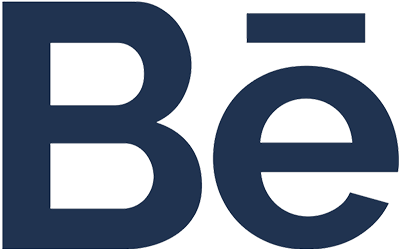Yseulys Costes: Can you elaborate on “profits is the outcome”, what is the necessity of being profitable and profit is only an outcome based on calculation norms?
Hubert Joly: So profit is an imperative, you cannot survive if you are not profitable, if your economic performance is mediocre compared to the competition, the activists will go after you, the shareholders are not some abstract notions. They are the people to whom we give our money, right, money comes from us, and particularly in the US, we ask them to make sure that our money is available when we retire, that we have enough when we retire. So that is the reality of shareholders. And so of course, we have to perform for them.
The question of treating it as an outcome is this idea that instead of focusing on managing the P&L or the balance sheet, well it’s not bad to do that, but going upstream and looking at the drivers of performance. So even in that turnaround, I have done quite a few turnarounds when I was at McKinsey, the key is to understand the key operational drivers of performance and to make sure that you maximise those. The big idea is to treat profit as a very important imperative and as an outcome, as opposed to the ultimate goal both in our lives and for the company.
Guillaume Floquet: Could you give us a few examples of your KPIs?
Hubert Joly: Well, you build KPIs around various stakeholders so around people, so you have employee engagement, turnover, diversity, for customers it is going to be the NPS, Customer lifetime value and all of the metrics, you guys are the expert at this around your marketing activity and so forth.
Then of course you have your carbon footprint, it is interesting how companies when they make operational decisions now, look at it in a much more multifaceted fashion.
I was at a board meeting recently where we were reviewing supply-chain optimisation and the criteria were: was it good for the customers but also what is good on the planet, and what is good for shareholders. So of course profit, the financial indicators are important.
One of the interesting discussions these days is, should the world develop some norms and standards around measuring the companies performance for the various stakeholders. So we have the Commission in Brussels, working hard to create something very complicated, different initiatives.
For me ultimately, what I believe is that the best indicators are going to be those who are created by the companies, that are specific to them. In general, the way we want to measure ourselves, it is better that we define how we want to measure ourselves than if others imposed this on us. But at the same time, I recognize the need for comparable norms so that it is easier for investors and rating agencies in the public to compare.
Yseulys Costes: Thank you Hubert, perhaps another question from Alexandra who asks “we are facing issues sometimes to keep inspiring our teams, mainly when we are a hyper operational job focus, any advice or tips? “ You started talking about that with your people in your stalls so some tips ?
→ We sometimes face issues to keep inspiring our teams, mainly when we are a hyper operational job focus, any advice or tips?
Hubert Joly: Any situation can lead to quite a bit of excitement, it is all about how as leaders we shape that environment.
So in the very dark days of Best Buy, whenever we thought we were going to die, we were focused on our operational improvement, but it is the way you approach this, it is how you work on this with your teams, and then you celebrate progress.
So there is a key concept, I learned that from Jean Marie Descarpentries as well, sometimes people spend a lot of time focusing on goals and perfection… His idea was that progress momentum is the key, including when dealing with the investors.
For example when we unlocked “ship-from-store”, which was a big unlock for us, initially we did it in 50 stores, we showed that it would work and then we told the investors we are going to move to 250 stores and we told them later that it would be 1000 stores, and that is the progress we were making.
The focus on the month to month progress and improvement, getting better, is a better focus than … An alternative, sometimes you see companies setting goals, saying they want to be number one, they want to be the best. And then you have rankings, I think this is a disease, I think it’s more about becoming the best version of yourself and getting better than becoming the best. It is my view.
Yseulys Costes: Thank you very much Hubert, I do agree, it will apply more than it applies today. Another question, Hubert you mentioned the importance of honesty and goals as important turnaround pillars, which do you think is important success or integrity ?
Hubert Joly: So, Yseulys, 98% of the questions that are asked with “ either” and “or” are better answers that end. So I am not going to fall into this trap. *laughs*
But integrity is foundational, if we don’t have integrity, if we don’t have vulnerability, if we don’t have transparency, there is no way you can be successful. In the book, I tell the story of when one of my heroes Alan Mullaly became the CEO of Ford and Ford was about to lose 17 Billion dollars, that is what they were expecting. And they did lose 17 Billion dollars, I think it was in 2006, so they didn’t have a forecasting problem, but at the same time, you know how you do green and red right to assess your performance, everything was green. And one day, Mark Fields, the president of the US Market, the Thursday’s weekly appreciation performance review, had a red. That was when he admitted there was a problem and that I say “clap clap clap” if we can admit that we have issues then, we can work together to solve the problems.
So integrity and transparency and vulnerability is what leads to excellence.
Yseulys Costes: Thank you very much Hubert another question which is “Could you elaborate on how to decide who to put in a position of power? Thank you”
Hubert Joly: Historically we have put a lot of emphasis on expertise and experience, and it is not entirely bad but we have increasingly placed more and more importance on who the person is, what kind of a leader they are, what drives them and what difference do they want to make.
And one of the leadership expectations at Best Buy is to be clear about who you serve. I told the officers at Best Buy, if you are here to serve yourself or your boss or me as the CEO, it is okay, I don’t have a problem with that, except you can’t work here. We are going to promote you to be a Best Buy customer, we are going to take good care of you. I want you to feel that you are here to serve others, serve the frontliners, serve the organization but it’s not about serving yourself.
An amazing question I had when I was being interviewed for the CEO job was at Carlson Company, my job before Best Buy, I was interviewed by Marilyn Carlson Nelson, the daughter of the founder, it was to replace her, one of the questions she asked me was “Hubert, tell me about your soul”.
Thibaut Munier: I wonder who got that in an interview already.
Yseulys Costes: Thank you very much and I think it’s an amazing word to end this session, it’s already been one hour spent with you and it goes too fast. Thank you so much, each time I am lucky enough to exchange with you it’s really a pleasure so thank you all for being with us for this hour and please spread the word, and discuss about it because it is not an easy discussion, but it’s a discussion we need to have now and which are important. So bring your ideas and bring your soul in this discussion in Europe, in the US, wherever you are, thank you very much.

